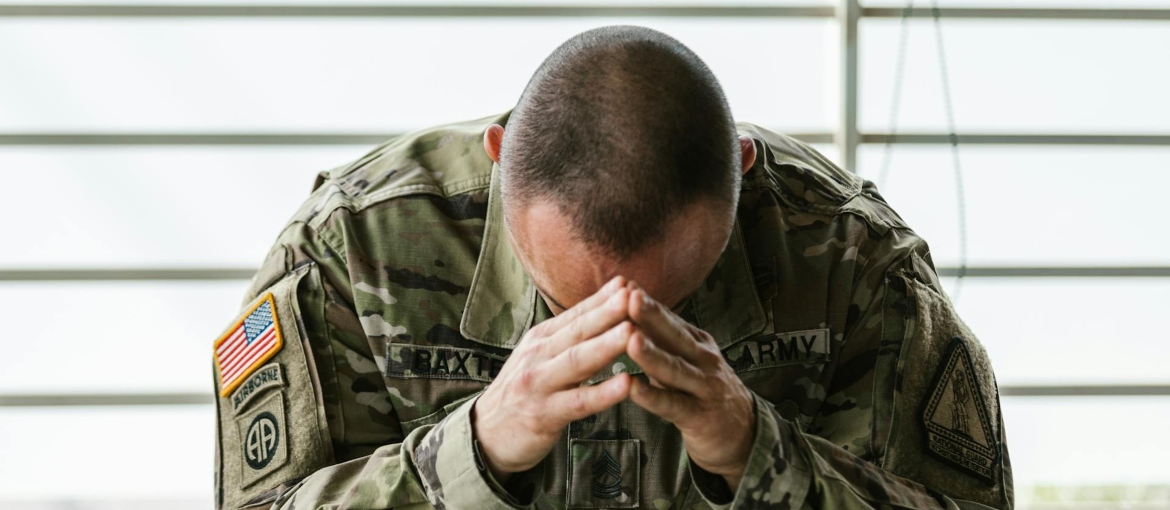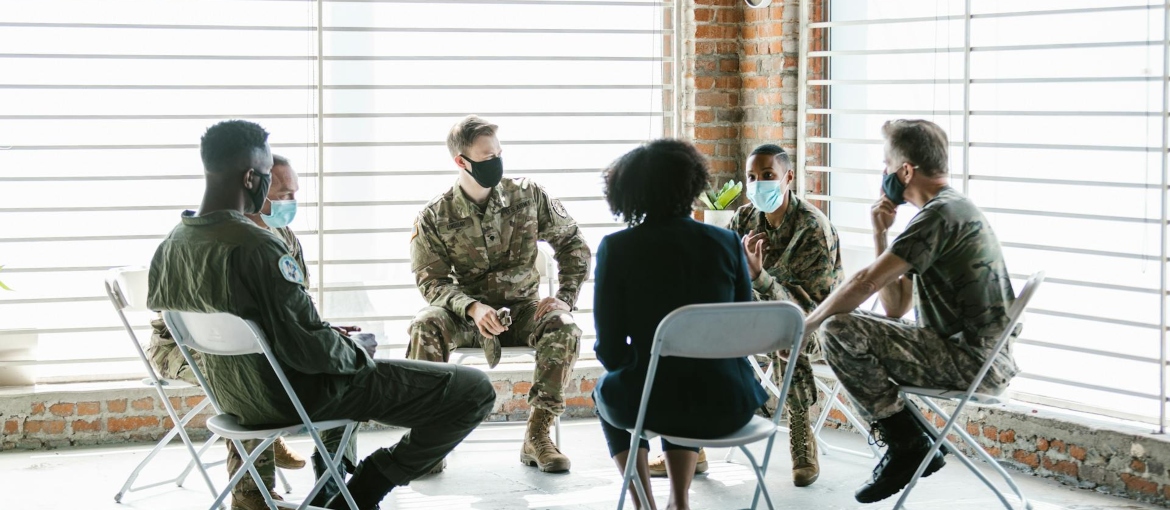Veteran PTSD and substance abuse are two serious issues that often go hand in hand. Many veterans struggle with post-traumatic stress disorder (PTSD) after serving in combat. In some cases, veterans turn to drugs or alcohol to cope with these painful memories. This can lead to substance abuse problems, creating a difficult cycle that is hard to break. Drug and alcohol rehab in West Virginia offers valuable treatment options tailored to the specific needs of veterans. So, in this blog, we will explore why trauma increases the risk of addiction, the treatment options available, and how veterans can find the support they need.
Is It Common for a Veteran with PTSD to Misuse Alcohol?
The stress, fear, and memories of combat can be overwhelming. For some veterans, alcohol becomes a way to numb these painful feelings. They may drink to forget or to feel better for a short time. This is known as self-medication. While alcohol may provide temporary relief, it can make PTSD symptoms worse in the long run. Drinking can increase feelings of anger, depression, and anxiety, which are common with PTSD. It can also affect a veteran’s ability to think clearly and make good decisions. So, for veterans with PTSD and substance abuse, looking for help through rehab for veterans is essential. Specialized rehab programs help veterans break free from addiction and address the causes of PTSD, supporting their healing and helping them take back control of their lives.

Alcohol misuse can also affect relationships and work life. Many veterans find it harder to connect with family and friends while struggling with both PTSD and alcohol. This can lead to more isolation and feelings of loneliness. The combination of veteran PTSD and substance abuse can make it harder for veterans to get the help they need. They might not look for treatment in an opiate rehab center because they are afraid of being judged or because they don’t want to face their trauma.
Are Veterans More Likely to Have Substance Abuse Problems?
Many veterans struggle to seek rehab due to stigma, limited access to resources, and a reluctance to ask for help. They experience trauma during combat or other stressful situations. This trauma can lead to PTSD, which often causes anxiety, depression, and flashbacks. To cope with these painful feelings, some veterans use alcohol or drugs. These substances can offer temporary relief but make the problem worse over time.
Another reason veterans are more likely to struggle with substance abuse is the stress of reintegrating into civilian life. After spending years in the military, returning to everyday life can feel overwhelming. Veterans may find it hard to adjust to a slower pace or deal with the loss of the sense of purpose they had in the military. Combat exposure also plays a role in the increased risk of substance abuse. For those veterans dealing with addiction to medications like Ambien, specialized treatment programs can provide the support needed to break the cycle. Ambien addiction treatment helps them safely manage withdrawal and address the underlying causes of their substance use, supporting their overall recovery.

What Is a Dual Diagnosis of PTSD and Substance Abuse?
A dual diagnosis means that someone is dealing with two conditions simultaneously. For veterans, this often means having both PTSD and substance abuse problems. PTSD is a mental health condition caused by experiencing trauma, such as combat. It can cause symptoms like anxiety, nightmares, and flashbacks. Substance abuse is when someone misuses alcohol or drugs to cope with these feelings.
A dual diagnosis is tricky because both conditions affect each other. PTSD can make the urge to drink or use drugs stronger. At the same time, using substances can make PTSD symptoms worse. This creates a cycle that is hard to break. To truly heal, veterans need to treat both PTSD and substance abuse together. Treating just one condition won’t be enough, as the other condition can keep causing problems. Veterans with a dual diagnosis need specialized care that addresses both their mental health and substance use. Therapy is often a key part of this treatment.
Rehabilitation Programs for Veterans with PTSD and Substance Abuse
Rehabilitation programs are important for veterans with PTSD and substance abuse. These programs are designed to help veterans address both their mental health and addiction issues at the same time. To cope, they may turn to alcohol or drugs, which only make their symptoms worse. Also, for those struggling with barbiturate use, specialized barbiturates rehab programs are important. Barbiturates are highly addictive, and quitting without help can be dangerous.

Rehabilitation programs offer a safe place where veterans can get the treatment they need to heal. These programs often start with medical detox. Detox helps clear the body of alcohol or drugs safely under medical supervision. After detox, therapy becomes a key part of treatment. Therapy helps veterans understand their PTSD and teaches them healthy ways to cope with their emotions. It can include individual therapy, where veterans work one-on-one with a counselor, or group therapy, where they can connect with other veterans with similar struggles.
Rehabilitation programs for veterans also focus on building long-term recovery skills. This includes learning to deal with stress without turning to substances. Veterans are taught healthy coping strategies, like mindfulness, exercise, and relaxation techniques. Some programs also provide family support, so loved ones can understand how to help the veteran through recovery.
Coping Strategies and Support for Veterans
Coping strategies can help veterans manage PTSD and substance abuse. These healthy habits provide ways to deal with stress without relying on drugs or alcohol.
Coping Mechanisms for Veterans with PTSD and Substance Abuse
Coping mechanisms help veterans manage their emotions and reduce the urge to use alcohol or drugs. One effective coping strategy is exercise. Regular physical activity can help reduce stress and improve mood. Simple activities like walking, jogging, or yoga can help veterans feel better physically and mentally. Exercise releases endorphins, chemicals in the brain that make us feel happy and calm. Stimulants rehab facilities offer specialized therapy to combat addiction and promote recovery for veterans who are battling with amphetamine use.
Mindfulness is another helpful coping mechanism. Mindfulness involves focusing on the present moment without judgment. It helps veterans stay calm and in control, especially when they feel overwhelmed by memories of trauma. Breathing exercises, meditation, and mindfulness practices can help veterans relax and reduce anxiety.
Therapy is also a key part of coping for many veterans. Trauma-focused therapy, like cognitive-behavioral therapy (CBT), can teach veterans how to handle their emotions in healthy ways. Therapy helps veterans understand their PTSD and work through painful memories. For veterans with fentanyl addiction, rehab centers provide specialized treatment to manage both the physical dependence and the underlying trauma. Fentanyl rehab helps veterans safely detox, manage withdrawal symptoms, and develop strategies to stay sober.
Support Groups for Veterans with PTSD and Substance Abuse
Support groups provide a safe place where veterans can share their experiences and connect with others who understand what they are going through. Being around people with similar struggles can reduce loneliness and isolation. Veterans often feel that no one truly understands the pain they carry, but in support groups, they find people who have been through similar experiences. For veterans struggling with substance use, including meth addiction, a meth rehab center West Virginia provides can be the support they need. These centers provide both addiction treatment and mental health services.
In support groups, veterans can talk about their PTSD, their addiction, and the challenges they face in their daily lives. Sharing their story can be healing, and it often helps them see that they are not weak for struggling. Reaching out for help shows strength. Support groups also provide a chance to learn from others. Veterans can share coping strategies and recovery tips that have worked for them.

Many support groups are led by professionals who understand PTSD and addiction. These leaders guide the group, ensuring it stays focused on healing and recovery. Some support groups are specific to veterans, which means everyone in the group has military experience. This shared background can make it easier for veterans to connect and feel understood. Family members can also be involved in support groups to learn how to better support their loved ones.
Medications for Veterans with PTSD and Substance Abuse
When a veteran has both conditions, finding the right medication can help manage symptoms and support recovery. For PTSD, certain drugs can help reduce anxiety, depression, and other troubling symptoms. These might include selective serotonin reuptake inhibitors (SSRIs) or other antidepressants, which can help balance brain chemicals and improve mood. Medications like these can make it easier for veterans to cope with the emotional pain caused by trauma.
Benzo detox is an important step in recovery for people who have used these medications long-term. It’s important to do this under medical supervision because withdrawal can be risky. Symptoms like anxiety, agitation, and even seizures can happen. So, to help manage this, doctors usually lower the dose gradually, giving the body time to adjust safely.

When it comes to substance abuse, medications can also help reduce cravings and prevent relapse. Medication-assisted treatment (MAT) is a method that uses both medication and therapy to treat addiction. MAT helps veterans manage withdrawal symptoms and cravings so they can work on their recovery without being distracted by the urge to use substances. Veterans need to work closely with doctors when using medications for PTSD and substance abuse. Each veteran is unique, and the right combination of medication may vary. A doctor will carefully monitor how the medications affect the veteran and adjust them if necessary.
What Is the VA Rating for PTSD with Alcohol Abuse?
The VA rating for PTSD with alcohol abuse is a way to determine how much disability compensation a veteran is eligible for due to their condition. Veterans who suffer from PTSD and alcohol abuse may qualify for benefits if these conditions were caused or made worse by their military service. The VA evaluates how severe the symptoms are and how much they affect daily life. A higher rating means that the veteran has more severe symptoms and, in turn, may receive more financial support.
The VA uses a rating system to assess PTSD, ranging from 0% to 100%. A rating of 0% means the condition is present but does not significantly affect the veteran’s ability to function. A rating of 100% means the symptoms are extremely severe and cause major difficulties in daily life. Alcohol abuse is often considered part of the PTSD diagnosis if it is used as a way to cope with the trauma. The VA looks at how much alcohol use impacts the veteran’s life, relationships, and ability to work.

The Final Thoughts on Veteran PTSD and Substance Abuse
Understanding the link between veteran PTSD and substance abuse is crucial for helping those who have served our country. Many veterans face the painful effects of PTSD, which can lead them to misuse alcohol or drugs as a way to cope with their trauma. With the right care, veterans can overcome the challenges of PTSD and addiction, leading to better mental health and a brighter future. Veterans need to look for help and take advantage of the resources available to them!



